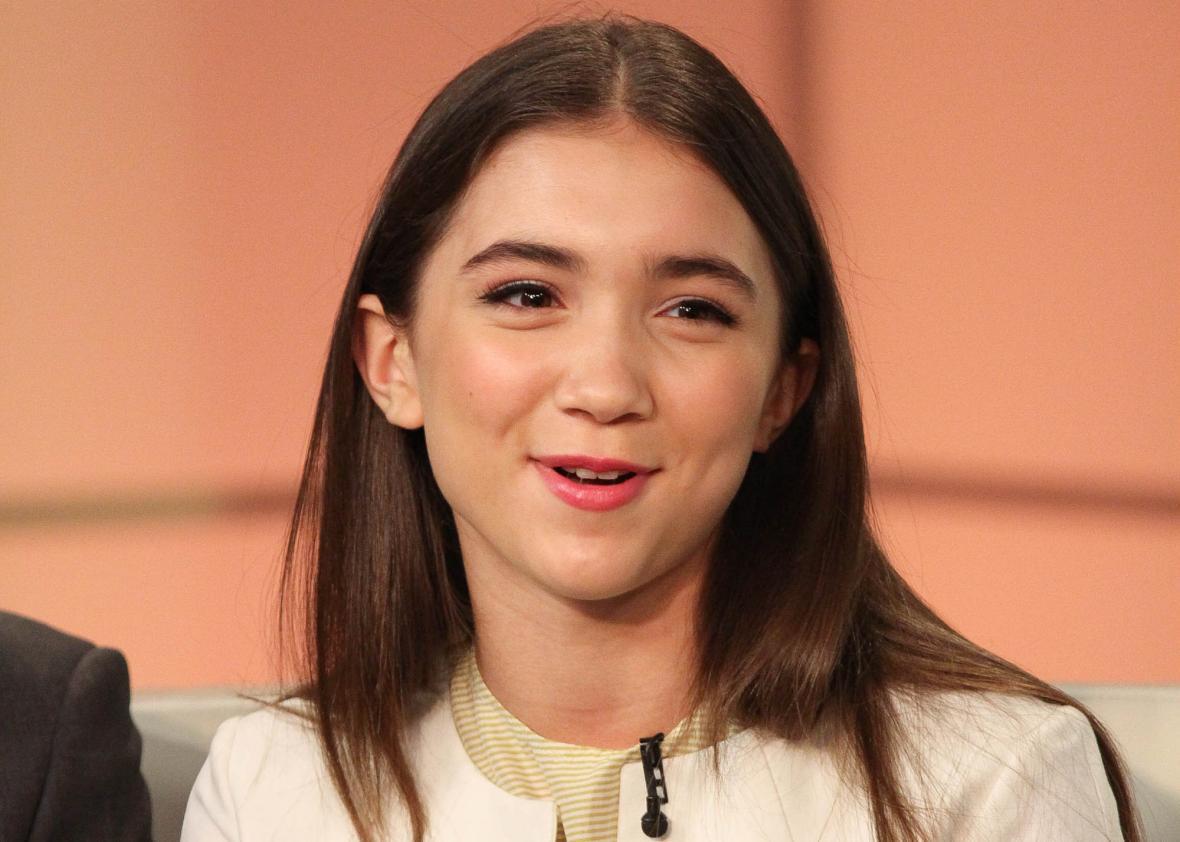Teen actress Rowan Blanchard, best known for starring in the Disney channel reboot Girl Meets World, just proved once and for all that intersectional feminism isn’t really all that difficult to grasp.
Being a young celebrity feminist can be treacherous in this day and age, as Taylor Swift found out earlier this summer during a short-lived Twitter spat with Nicki Minaj. In the exchange, Swift revealed a huge blind spot to the experiences of women of color and eventually apologized, because this intersectionality stuff is HARD, you guys.
“Swift only recently had her feminist awakening, but she’s making up for lost time,” one Swift apologist wrote in L.A. Weekly. “ … [T]he path from realizing that it’s OK to call yourself a feminist to being a knowledgeable, outspoken, intersectional feminist is not an easy one, and everyone takes that journey at a different speed.”
I imagine that Blanchard, who is just 13 years old—younger even than Swift was when she moved to Nashville to pursue country stardom—might disagree.
In response to a question on her Tumblr about “White Feminism,” the teenage actress posted a short essay over the weekend that very simply lays out what it means to be an inclusive feminist. She may be young, but Blanchard nailed it, recognizing that being a feminist and an ally means listening, learning, and being empathetic.
“I have made a very big point at making sure my personal feminism includes everyone—and educating myself and discussing these topics have really helped,” Blanchard writes.
She goes on to stress that feminists can and should adopt issues such as police brutality and racial disparities into their sphere: “The way a black woman experiences sexism and inequality is different from the way a white woman experiences sexism and inequality. Likewise with trans-women and Hispanic women.” It’s true!
Blanchard gains further credibility by quoting feminist theorist Kimberlé Crenshaw, who first introduced the term intersectionality, and by noting fellow teen actress Amandla Stenberg, who herself has spoken about being a black feminist. She’s amplifying the words of others and actually listening to what they have to say. She signs off with a call for further conversation on the topic, saying, “We need to be talking about this more. Discussion leads to change.”
Sure, there are dozens of excellent books on the topic that Taylor Swift and other white lady feminists should read, but even as they work their way through that curriculum, it’s easy enough just to listen—and see what you hear.
